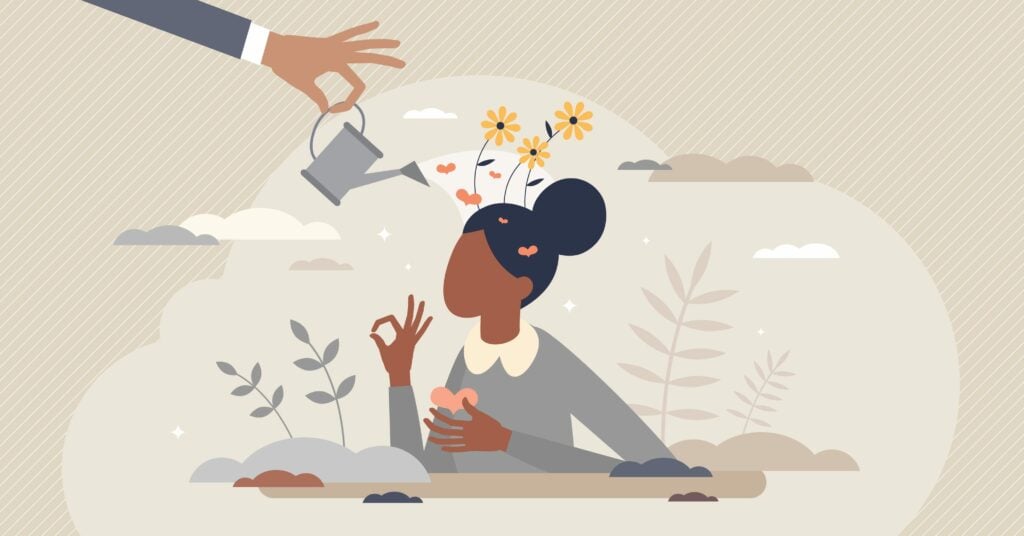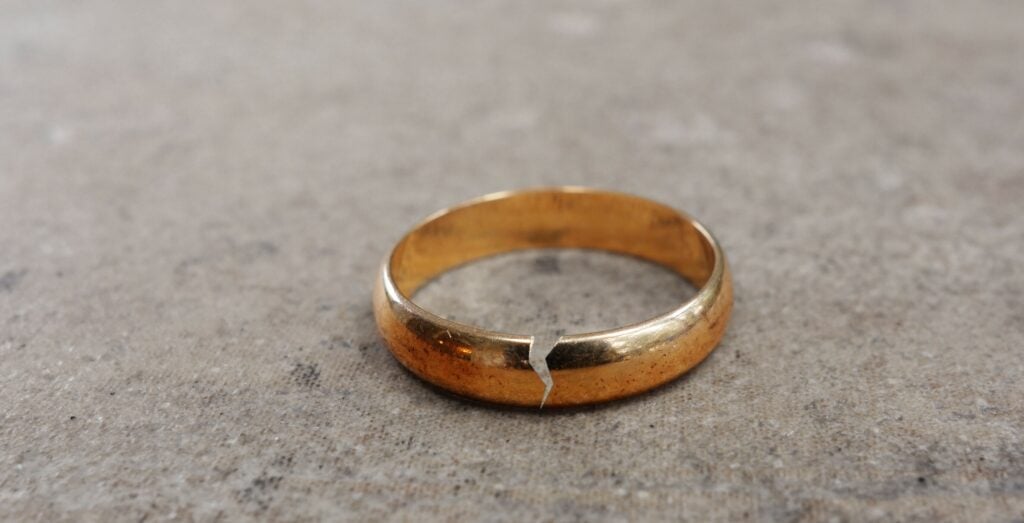Total liberation: A Buddhist approach to healing
Written by Ryan Howes, PhD, ABPP


Harm reduction. Symptom management. Lowering “subjective units of distress.” Many of us have trained for years to achieve identifiable goals such as these, which fit nicely into case notes and satisfy insurance companies’ thirst for payment-validating change.


Imagine, however, what therapy would look like if the focus were on liberating a client from their pain, rather than simply diluting their symptoms. Can clients ever truly be free of their suffering? Of their trauma? Of the confines of their selves?
Reverend angel Kyodo williams certainly thinks so.
A writer, activist, and ordained Zen Buddhist teacher, Rev. angel is the author of Being Black: Zen and the Art of Living with Fearlessness and Grace, and the coauthor of Radical Dharma: Talking Race, Love, and Liberation. The Library Journal called her “the most vocal and most intriguing African-American Buddhist in America.”
Ryan Howes: Were you seeking a spiritual path, or did it find you?
Rev. angel: It definitely found me. Growing up, I was decidedly agnostic, although I had a number of religious influences. One was a babysitter who came from a very religious family. She took me to church, and all the expectations around getting dressed up in the Black Baptist tradition really turned me off. I remember sweating in the summertime with little white socks on and patent leather shoes. My father is a nonpracticing Catholic. My mom is quite spiritual, though definitely not religious. And I had a stepmother who took me to Sunday school in an Episcopalian church.
RH: What drew you to Zen Buddhism?
Rev. angel: I was looking for something that moved me, and I stumbled across Zen art. That led me to Zen meditation. The thing that I was most attracted to in Zen, and what I was imagining about Buddhism, was that it’s so practiceable that it doesn’t require that funny little word “faith.” I often help people distinguish between Buddhists and philosophical Buddhists. I was a decidedly philosophical one, even though I became a priest.
RH: You talk a lot about teaching liberation and the path to liberation.
Rev. angel: The Buddha taught “only suffering and the causes of suffering.” But if you say that, a lot of Westerners are turned off. They’re gone. So, because I’m practical and I know how much words matter, I teach liberation—it’s simply the other side of suffering, nothing else.
I want to be able to speak to people. I don’t want to be bound by trauma when I talk. Given the lineage of my people and the inequitable social structures that persist, our suffering is a given. Let’s talk about how we address it: liberation.
RH: Many people who are suffering seek out therapy, religion, or some form of spirituality. What do you think they’re hoping to find? Relief? Meaning?
Rev. angel: I think people are looking for liberation from their suffering. That’s the equation of the Buddha. But there’s a distinction between freedom from suffering and liberation from it. In each, there’s a release, but the former entails a freeing from and the latter a freeing into. With liberation, we’re freed into the fullness of who we are, and empowered to live that way.
Conventional wisdom teaches that the nature of suffering is a result of attachment to a substantiated self. Zen and Buddhism posit that there’s no such thing as self—which is interesting inside the world of psychotherapy. People are navigating how we deal with this thing called a self.
RH: Yes, self is central to many therapeutic approaches.
Rev. angel: Zen Buddhism is the notion of the dissolution of a self in a way that’s effervescent. It’s not to say that we don’t have a body or a being, but that it rises and falls, and when we fixate on any singular moment of it or expression of it, that’s what our suffering comes from.
The self says, “I was happy yesterday. I want to be happy today.” We cling to the past or yearn for something that’s going to come in the future, and we suffer as a result of it. That’s not to say that we can’t enjoy life or that we don’t have sadness, but that the suffering is a looping of pain beyond the time-space of pain itself.
We have emotional pain, physical pain, physiological pain. We have bodies and nervous systems, and we’re frail creatures. We have ancestral pain, generational pain, socially induced pain. But when we loop on it and cast ourselves into the future or fret about a past that we can’t change, we get anxious and depressed.
RH: In therapy, we’d call that rumination.
Rev. angel: These things, these sufferings that we think of in psychotherapeutic terms, are the results of not being present. In the now, we experience pain, but when we carry the pain into the next moment, then we’re suffering. We’re bringing our pain along, adding insult to injury, and overidentifying with a particular experience.
Zen suggests that you distinguish the moment of pain from who you are. You are not your pain. You are not that singular experience. You may be informed by it, shaped by it, but you’re not that moment of pain.
RH: It sounds like the modern idea of mindfulness, which is about being in the present moment, as opposed to living in your past trauma or your worries about the future.
Rev. angel: I’d say that the modern mindfulness stuff is a distillation of the pithiest concepts of a rich, complex body of thought and experience to come out of Buddhist understanding.
RH: You once said, “Without inner change, there could be no outer change, and without collective change, no change matters.” So inner change comes first, but if we’re going to make any difference, we have to have collective change. Right?
Rev. angel: That’s right. It’s like if you save the ship, but everybody’s been tossed off, then it doesn’t really matter if you’re the only one who survives, because you’ve lost your loved ones, your connections, your community. We’re social creatures, and our sense of relationship and joy, vigor, and appreciation of life comes as a result of our connections.
So the Western inflections of Buddhism aren’t sufficient: it isn’t sufficient just to have your own solo liberation if the world around you is burning. While you may experience yourself as somehow unscathed, the truth is that we’re interdependent. If the pandemic has shown us nothing else, it’s that we impact each other. We touch each other. We share breaths; therefore we have a responsibility to be accountable to how we are and how things are for others. We can’t just sit here and ignore the fact that Africa doesn’t have access to much vaccine.
RH: You’re only the second Black woman Zen teacher. I know a part of your journey has been inviting other people of color to become aware of Zen philosophy. How has that been for you?
Rev. angel: Lonely! It took maybe 10 years before I heard about the only other Black Zen teacher when I was coming up. There were only white people around me, who thought they were being Zen but were actually embodying garden-variety racism. There was no one to help me navigate that racism and tell me, “No, you’re not crazy. What you’re experiencing is real.”
Of course, it makes sense that there aren’t a lot of Black people in a Japanese tradition that comes from China, and India before that—and has been in the United States for only 50 years. Black people come with their own history. They’re largely Christian or Muslim, with their own spiritualities.
RH: Have more Black people begun to convert to Zen?
Rev. angel: As I’ve come to connect with other Black folks who’ve studied Zen or Buddhism, a lot of them co-hold it with their existing spirituality in ways that white people don’t; they haven’t left Christianity to enter Zen. So the more curious-minded question is around why the European-descended, white-bodied people in America want to run off and become quasi-Japanese.
I’m not saying that it’s bad—just weird. And it’s not just within Zen. Many people who are accustomed to having their practices and spirituality and music appropriated aren’t so quick to go appropriate someone else’s. It’s the same for indigenous practices and yoga.
There’s a sense of entitlement to access other people’s things. But now that we’re in a global society, it makes sense that it’s happening more and more. The global connectivity allows us to find aspects of ourselves that we didn’t know existed in another culture and that we find resonance with so much more than what we grew up with. I think that that’s where we’re heading as a people and a planet: to greater complexity and not just being situated according to what we were born into and of, which has led to an incredible clash that we’re having as a society.
Where does belonging come from? How do we know what belonging is? Is it about saying, “I was born in coal mine country, and so all I know how to do is take the tops off of mountains. If I don’t have that, I can’t be whole anymore”? Or are we coming into a place in which we know ourselves more wholly by difference?
RH: Is there something that you wish therapists knew about spirituality?
Rev. angel: Without inner work, there can be no outer work. It’s a therapist’s own work that’s going to be their greatest gift to their clients and the people that they support; their own wholeness.
What we have most to offer to our clients, to the people and things we care about and love, it doesn’t exist in a book. It can’t be trained. It’s someplace out there, and we have to move into it. We have to find it within ourselves and offer it to ourselves to be able to offer it to others.
Ryan Howes, PhD, ABPP, is a psychologist, writer, musician, and clinical professor at Fuller Graduate School of Psychology in Pasadena, California.

About the publisher
For nearly 50 years, the Psychotherapy Networker magazine has been celebrated for its incisive and heartfelt articles on the challenges of clinical practice, the therapeutic innovations shaping the field, and the extraordinary experience of being a therapist.
Related articles

In this time of uncertainty and turmoil, it’s crucial to recognize that...

How to help clients while managing your own emotions
Therapist, psychiatrist, author, and speaker Frank Anderson talks about how to...

Understanding antidepressant selection
With medication management playing an increasingly pivotal role in the...

When a marriage ends, someone has to tell everyone. Wayne Scott, MA, LCSW...
